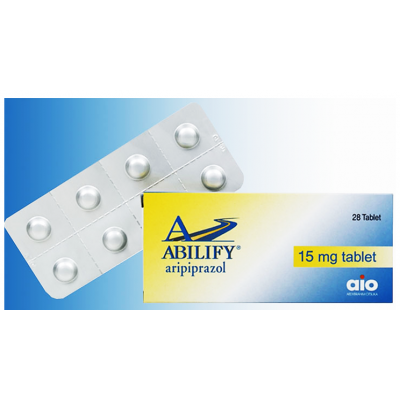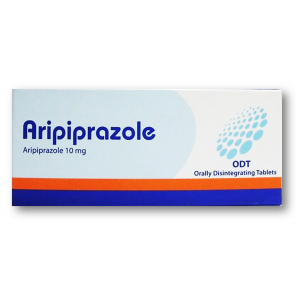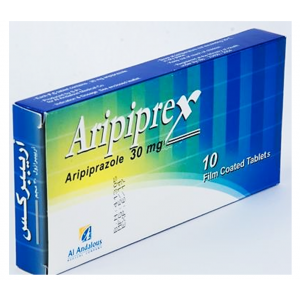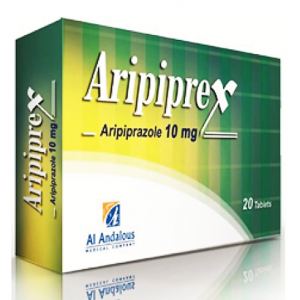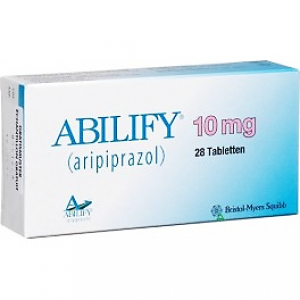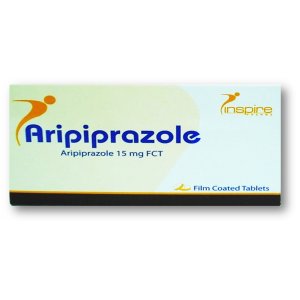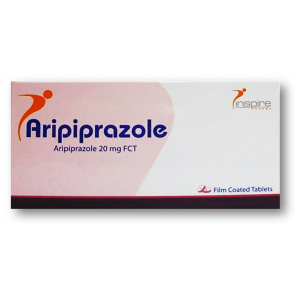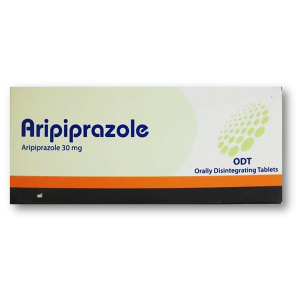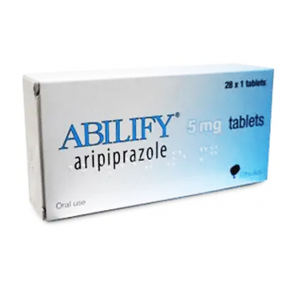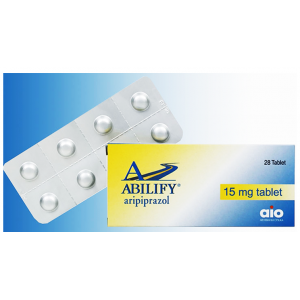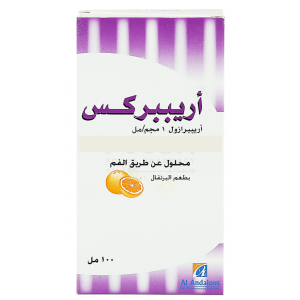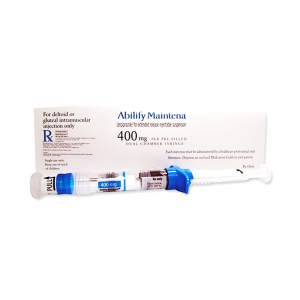- Anti-hestaminic & Respiratory Drugs (20)
- Anti-inflammatory Drugs (192) +-
- Baby & Mom (1319) +-
- Baby & Mom > Bath, skin & Hair > Skin Care > wibes (52)
- Beauty (3001) +-
- Beauty > Skin Care > whitening (297)
- Chemotherapy & Immune Response (882) +-
- Chemotherapy & Immune Response > ANTI-FUNGAL (11)
- Chemotherapy & Immune Response > Chemotherapeutic Agents > Hormone Antagonists >Enzyme Inhibitors (289)
- CIRCULATORY DISTURBANCE AGENTS (24)
- Diet & Fitness Products (280) +-
- DRUG AFFECTING CENTRAL NERVOUS SYSTEM (191)
- HEMATOLOGY (39)
-
Medical Supplies (503)
+-
- Chemicals & Disinfectants (19)
- Dental Supplies (31)
- Devices & Instruments (10)
- Diabetic Supplies (121)
- General Medical Supplies (21)
- I.V & Medical Solution (0)
- Intensive Care Unit & Anesthesia Supplies (0)
- KIDNEY UNIT SUPPLIES (21)
- Lab Supplies (3)
- Miscellaneous (21)
- Neonatal Unit Supplies (0)
- Operation Room Supplies (2)
- Sanitary (5)
- Sterilization Supplies (0)
- Surgical Sutures (4)
- Syringes (3)
-
Medicines & Health (2639)
+-
- Allergy & Sinus (95)
- Children's Health Care (54)
- Cough, Cold & Flu (277)
- Digestive Health & Nausea (225)
- Ear, Nose & Throat Care (179)
- Eye Care (117)
- Feminine Care (325)
- Foot Care (9)
- Orthopaedic Appliances (0)
- Pain Relief & Management (237)
- Pill Organizer (2)
- Skin Treatments (813)
- Sleep & Snoring Aids (2)
- Support & Braces (7)
- Medicines & health > Gout releif (42)
- Natural & Organic Products (81) +-
- OTC > Analgesics > Anti-inflammatory Drugs (44)
-
Personal Care (3254)
+-
- Bath & Body (271)
- Deodorant & Anti-perspirants (188)
- Ear, Nose & Throat Care (175)
- Eye Care (124)
- Feminine Care (374)
- Foot Care (17)
- Hair Care (472)
- Home Tests & Monitorings (14)
- Incontinence (7)
- Lip Care (22)
- Massage & Relaxation (17)
- Natural & Organic Personal Care (7)
- Oral Care (88)
- Pregnancy & Fertility (64)
- Shaving & Grooming (65)
- Sun Care (79)
-
Prescription Drugs (2879)
+-
- Analgesics (181)
- Cardiovascular System (374)
- Drugs Affecting Musculoskeletal System (65)
- Drugs Used In Infections (56)
- Ear & Nose Drugs (2)
- Endocrine System (176)
- Gastrointestinal Tract (242)
- Gastrointestinal Tract > Hepatology > Liver treatment (61)
- GYNECOLOGY (2)
- Miscellaneous (11)
- NEPHROLOGY > URINARY SYSTEM > RENAL DISORDERS > URINARY TRACT DISORDERS (46)
- NEUROLOGY (222)
- Nutrients & Blood Electrolytes (2)
- Respiratory System (154)
- SKIN > NAILS > HAIR > TOPICAL PREPARATIONS (77)
- Vaccines (1)
- Prescription drugs > Cardiovascular system > Anti-hypertension drugs (242)
- Sexual Wellness (301) +-
- Vitamins & Minerals Supplements (1197) +-
Ex Tax: 331EGP
Example
You can return the product within 14 days of purchase.
ReturnsYou can return the product within 14 days of purchase.

Abilify 15 mg ( Aripiprazole ) 10 tablets
1. Name of the medicinal product
ABILIFY 5 mg tablets
ABILIFY 10 mg tablets
ABILIFY 15 mg tablets
4. Clinical particulars
4.1 Therapeutic indications
ABILIFY is indicated for the treatment of schizophrenia in adults and in adolescents aged 15 years and older.
ABILIFY is indicated for the treatment of moderate to severe manic episodes in Bipolar I Disorder and for the prevention of a new manic episode in adults who experienced predominantly manic episodes and whose manic episodes responded to aripiprazole treatment (see section 5.1).
ABILIFY is indicated for the treatment up to 12 weeks of moderate to severe manic episodes in Bipolar I Disorder in adolescents aged 13 years and older (see section 5.1).
4.2 Posology and method of administration
Posology
Adults
Schizophrenia: the recommended starting dose for ABILIFY is 10 mg/day or 15 mg/day with a maintenance dose of 15 mg/day administered on a once-a-day schedule without regard to meals. ABILIFY is effective in a dose range of 10 mg/day to 30 mg/day. Enhanced efficacy at doses higher than a daily dose of 15 mg has not been demonstrated although individual patients may benefit from a higher dose. The maximum daily dose should not exceed 30 mg.
Manic episodes in Bipolar I Disorder: the recommended starting dose for ABILIFY is 15 mg administered on a once-a-day schedule without regard to meals as monotherapy or combination therapy (see section 5.1). Some patients may benefit from a higher dose. The maximum daily dose should not exceed 30 mg.
Recurrence prevention of manic episodes in Bipolar I Disorder: for preventing recurrence of manic episodes in patients, who have been receiving aripiprazole as monotherapy or combination therapy, continue therapy at the same dose. Adjustments of daily dosage, including dose reduction should be considered on the basis of clinical status.
Paediatric population
Schizophrenia in adolescents aged 15 years and older: the recommended dose for ABILIFY is 10 mg/day administered on a once-a-day schedule without regard to meals. Treatment should be initiated at 2 mg (using ABILIFY oral solution 1 mg/mL) for 2 days, titrated to 5 mg for 2 additional days to reach the recommended daily dose of 10 mg. When appropriate, subsequent dose increases should be administered in 5 mg increments without exceeding the maximum daily dose of 30 mg (see section 5.1). ABILIFY is effective in a dose range of 10 mg/day to 30 mg/day. Enhanced efficacy at doses higher than a daily dose of 10 mg has not been demonstrated although individual patients may benefit from a higher dose.
ABILIFY is not recommended for use in patients with schizophrenia below 15 years of age due to insufficient data on safety and efficacy (see sections 4.8 and 5.1).
Manic episodes in Bipolar I Disorder in adolescents aged 13 years and older: the recommended dose for ABILIFY is 10 mg/day administered on a once-a-day schedule without regard to meals. Treatment should be initiated at 2 mg (using ABILIFY oral solution 1 mg/mL) for 2 days, titrated to 5 mg for 2 additional days to reach the recommended daily dose of 10 mg. The treatment duration should be the minimum necessary for symptom control and must not exceed 12 weeks. Enhanced efficacy at doses higher than a daily dose of 10 mg has not been demonstrated, and a daily dose of 30 mg is associated with a substantially higher incidence of significant adverse reactions including EPS related events, somnolence, fatigue and weight gain (see section 4.8). Doses higher than 10 mg/day should therefore only be used in exceptional cases and with close clinical monitoring (see sections 4.4, 4.8 and 5.1). Younger patients are at increased risk of experiencing adverse events associated with aripiprazole. Therefore, ABILIFY is not recommended for use in patients below 13 years of age (see sections 4.8 and 5.1).
Irritability associated with autistic disorder: the safety and efficacy of ABILIFY in children and adolescents aged below 18 years have not yet been established. Currently available data are described in section 5.1 but no recommendation on a posology can be made.
Tics associated with Tourette's disorder: the safety and efficacy of ABILIFY in children and adolescents 6 to 18 years of age have not yet been established. Currently available data are described in section 5.1 but no recommendation on a posology can be made.
Special population
Hepatic impairment
No dosage adjustment is required for patients with mild to moderate hepatic impairment. In patients with severe hepatic impairment, the data available are insufficient to establish recommendations. In these patients dosing should be managed cautiously. However, the maximum daily dose of 30 mg should be used with caution in patients with severe hepatic impairment (see section 5.2).
Renal impairment
No dosage adjustment is required in patients with renal impairment.
Elderly
The safety and efficacy of ABILIFY in the treatment of schizophrenia or manic episodes in Bipolar I Disorder in patients aged 65 years and older has not been established. Owing to the greater sensitivity of this population, a lower starting dose should be considered when clinical factors warrant (see section 4.4).
Gender
No dosage adjustment is required for female patients as compared to male patients (see section 5.2).
Smoking status
According to the metabolic pathway of aripiprazole no dosage adjustment is required for smokers (see section 4.5).
Dose adjustments due to interactions
When concomitant administration of strong CYP3A4 or CYP2D6 inhibitors with aripiprazole occurs, the aripiprazole dose should be reduced. When the CYP3A4 or CYP2D6 inhibitor is withdrawn from the combination therapy, aripiprazole dose should then be increased (see section 4.5).
When concomitant administration of strong CYP3A4 inducers with aripiprazole occurs, the aripiprazole dose should be increased. When the CYP3A4 inducer is withdrawn from the combination therapy, the aripiprazole dose should then be reduced to the recommended dose (see section 4.5).
Method of administration
ABILIFY is for oral use.
Orodispersible tablets or oral solution may be used as an alternative to ABILIFY tablets for patients who have difficulty swallowing ABILIFY tablets (see section 5.2).
4.3 Contraindications
Hypersensitivity to the active substance or to any of the excipients listed in section 6.1.
4.4 Special warnings and precautions for use
During antipsychotic treatment, improvement in the patient's clinical condition may take several days to some weeks. Patients should be closely monitored throughout this period.
Suicidality
The occurrence of suicidal behaviour is inherent in psychotic illnesses and mood disorders and in some cases has been reported early after initiation or switch of antipsychotic treatment, including treatment with aripiprazole (see section 4.8). Close supervision of high-risk patients should accompany antipsychotic treatment.
Cardiovascular disorders
Aripiprazole should be used with caution in patients with known cardiovascular disease (history of myocardial infarction or ischaemic heart disease, heart failure, or conduction abnormalities), cerebrovascular disease, conditions which would predispose patients to hypotension (dehydration, hypovolemia, and treatment with antihypertensive medicinal products) or hypertension, including accelerated or malignant. Cases of venous thromboembolism (VTE) have been reported with antipsychotic medicinal products. Since patients treated with antipsychotics often present with acquired risk factors for VTE, all possible risk factors for VTE should be identified before and during treatment with aripiprazole and preventive measures undertaken.
QT prolongation
In clinical trials of aripiprazole, the incidence of QT prolongation was comparable to placebo. Aripiprazole should be used with caution in patients with a family history of QT prolongation (see section 4.8).
Tardive dyskinesia
In clinical trials of one year or less duration, there were uncommon reports of treatment emergent dyskinesia during treatment with aripiprazole. If signs and symptoms of tardive dyskinesia appear in a patient on aripiprazole, dose reduction or discontinuation should be considered (see section 4.8). These symptoms can temporally deteriorate or can even arise after discontinuation of treatment.
Other extrapyramidal symptoms
In paediatric clinical trials of aripiprazole akathisia and Parkinsonism were observed. If signs and symptoms of other EPS appear in a patient taking aripiprazole, dose reduction and close clinical monitoring should be considered.
Neuroleptic Malignant Syndrome (NMS)
NMS is a potentially fatal symptom complex associated with antipsychotics. In clinical trials, rare cases of NMS were reported during treatment with aripiprazole. Clinical manifestations of NMS are hyperpyrexia, muscle rigidity, altered mental status and evidence of autonomic instability (irregular pulse or blood pressure, tachycardia, diaphoresis and cardiac dysrhythmia). Additional signs may include elevated creatine phosphokinase, myoglobinuria (rhabdomyolysis), and acute renal failure. However, elevated creatine phosphokinase and rhabdomyolysis, not necessarily in association with NMS, have also been reported. If a patient develops signs and symptoms indicative of NMS, or presents with unexplained high fever without additional clinical manifestations of NMS, all antipsychotics, including aripiprazole, must be discontinued.
Seizure
In clinical trials, uncommon cases of seizure were reported during treatment with aripiprazole. Therefore, aripiprazole should be used with caution in patients who have a history of seizure disorder or have conditions associated with seizures (see section 4.8).
Elderly patients with dementia-related psychosis
Increased mortality
In three placebo-controlled trials (n = 938; mean age: 82.4 years; range: 56 to 99 years) of aripiprazole in elderly patients with psychosis associated with Alzheimer's disease, patients treated with aripiprazole were at increased risk of death compared to placebo. The rate of death in aripiprazole-treated patients was 3.5 % compared to 1.7 % in the placebo group. Although the causes of deaths were varied, most of the deaths appeared to be either cardiovascular (e.g. heart failure, sudden death) or infectious (e.g. pneumonia) in nature (see section 4.8).
Cerebrovascular adverse reactions
In the same trials, cerebrovascular adverse reactions (e.g. stroke, transient ischaemic attack), including fatalities, were reported in patients (mean age: 84 years; range: 78 to 88 years). Overall, 1.3 % of aripiprazole-treated patients reported cerebrovascular adverse reactions compared with 0.6 % of placebo-treated patients in these trials. This difference was not statistically significant. However, in one of these trials, a fixed-dose trial, there was a significant dose response relationship for cerebrovascular adverse reactions in patients treated with aripiprazole (see section 4.8).
Aripiprazole is not indicated for the treatment of patients with dementia-related psychosis.
Hyperglycaemia and diabetes mellitus
Hyperglycaemia, in some cases extreme and associated with ketoacidosis or hyperosmolar coma or death, has been reported in patients treated with atypical antipsychotics, including aripiprazole. Risk factors that may predispose patients to severe complications include obesity and family history of diabetes. In clinical trials with aripiprazole, there were no significant differences in the incidence rates of hyperglycaemia-related adverse reactions (including diabetes) or in abnormal glycaemia laboratory values compared to placebo. Precise risk estimates for hyperglycaemia-related adverse reactions in patients treated with aripiprazole and with other atypical antipsychotics are not available to allow direct comparisons. Patients treated with any antipsychotics, including aripiprazole, should be observed for signs and symptoms of hyperglycaemia (such as polydipsia, polyuria, polyphagia and weakness) and patients with diabetes mellitus or with risk factors for diabetes mellitus should be monitored regularly for worsening of glucose control (see section 4.8).
Hypersensitivity
Hypersensitivity reactions, characterised by allergic symptoms, may occur with aripiprazole (see section 4.8).
Weight gain
Weight gain is commonly seen in schizophrenic and bipolar mania patients due to co-morbidities, use of antipsychotics known to cause weight gain, poorly managed life-style, and might lead to severe complications. Weight gain has been reported post-marketing among patients prescribed aripiprazole. When seen, it is usually in those with significant risk factors such as history of diabetes, thyroid disorder or pituitary adenoma. In clinical trials aripiprazole has not been shown to induce clinically relevant weight gain in adults (see section 5.1). In clinical trials of adolescent patients with bipolar mania, aripiprazole has been shown to be associated with weight gain after 4 weeks of treatment. Weight gain should be monitored in adolescent patients with bipolar mania. If weight gain is clinically significant, dose reduction should be considered (see section 4.8).
Dysphagia
Oesophageal dysmotility and aspiration have been associated with the use of antipsychotics, including aripiprazole. Aripiprazole should be used cautiously in patients at risk for aspiration pneumonia.
Pathological gambling and other impulse control disorders
Patients can experience increased urges, particularly for gambling, and the inability to control these urges while taking aripiprazole. Other urges, reported, include: increased sexual urges, compulsive shopping, binge or compulsive eating, and other impulsive and compulsive behaviours. It is important for prescribers to ask patients or their caregivers specifically about the development of new or increased gambling urges, sexual urges, compulsive shopping, binge or compulsive eating, or other urges while being treated with aripiprazole. It should be noted that impulse-control symptoms can be associated with the underlying disorder; however, in some cases, urges were reported to have stopped when the dose was reduced or the medication was discontinued. Impulse control disorders may result in harm to the patient and others if not recognised. Consider dose reduction or stopping the medication if a patient develops such urges while taking aripiprazole (see section 4.8).
Lactose
ABILIFY tablets contain lactose. Patients with rare hereditary problems of galactose intolerance, total lactase deficiency or glucose-galactose malabsorption should not take this medicinal product.
Patients with attention deficit hyperactivity disorder (ADHD) comorbidity
Despite the high comorbidity frequency of Bipolar I Disorder and ADHD, very limited safety data are available on concomitant use of aripiprazole and stimulants; therefore, extreme caution should be taken when these medicinal products are co-administered.
Falls
Aripiprazole may cause somnolence, postural hypotension, motor and sensory instability, which may lead to falls. Caution should be taken when treating patients at higher risk, and a lower starting dose should be considered (e.g., elderly or debilitated patients; see section 4.2).
4.5 Interaction with other medicinal products and other forms of interaction
Due to its α1-adrenergic receptor antagonism, aripiprazole has the potential to enhance the effect of certain antihypertensive medicinal products.
Given the primary CNS effects of aripiprazole, caution should be used when aripiprazole is administered in combination with alcohol or other CNS medicinal products with overlapping adverse reactions such as sedation (see section 4.8).
If aripiprazole is administered concomitantly with medicinal products known to cause QT prolongation or electrolyte imbalance, caution should be used.
Potential for other medicinal products to affect aripiprazole
A gastric acid blocker, the H2 antagonist famotidine, reduces aripiprazole rate of absorption but this effect is deemed not clinically relevant. Aripiprazole is metabolised by multiple pathways involving the CYP2D6 and CYP3A4 enzymes but not CYP1A enzymes. Thus, no dosage adjustment is required for smokers.
Quinidine and other CYP2D6 inhibitors
In a clinical trial in healthy subjects, a strong inhibitor of CYP2D6 (quinidine) increased aripiprazole AUC by 107 %, while Cmax was unchanged. The AUC and Cmax of dehydro-aripiprazole, the active metabolite, decreased by 32 % and 47 %, respectively. Aripiprazole dose should be reduced to approximately one-half of its prescribed dose when concomitant administration of aripiprazole with quinidine occurs. Other strong inhibitors of CYP2D6, such as fluoxetine and paroxetine, may be expected to have similar effects and similar dose reductions should therefore be applied.
Ketoconazole and other CYP3A4 inhibitors
In a clinical trial in healthy subjects, a strong inhibitor of CYP3A4 (ketoconazole) increased aripiprazole AUC and Cmax by 63 % and 37 %, respectively. The AUC and Cmax of dehydro-aripiprazole increased by 77 % and 43 %, respectively. In CYP2D6 poor metabolisers, concomitant use of strong inhibitors of CYP3A4 may result in higher plasma concentrations of aripiprazole compared to that in CYP2D6 extensive metabolizers. When considering concomitant administration of ketoconazole or other strong CYP3A4 inhibitors with aripiprazole, potential benefits should outweigh the potential risks to the patient. When concomitant administration of ketoconazole with aripiprazole occurs, aripiprazole dose should be reduced to approximately one-half of its prescribed dose. Other strong inhibitors of CYP3A4, such as itraconazole and HIV protease inhibitors may be expected to have similar effects and similar dose reductions should therefore be applied (see section 4.2). Upon discontinuation of the CYP2D6 or CYP3A4 inhibitor, the dosage of aripiprazole should be increased to the level prior to the initiation of the concomitant therapy. When weak inhibitors of CYP3A4 (e.g. diltiazem) or CYP2D6 (e.g. escitalopram) are used concomitantly with aripiprazole, modest increases in plasma aripiprazole concentrations may be expected.
Carbamazepine and other CYP3A4 inducers
Following concomitant administration of carbamazepine, a strong inducer of CYP3A4, and oral aripiprazole to patients with schizophrenia or schizoaffective disorder, the geometric means of Cmax and AUC for aripiprazole were 68 % and 73 % lower, respectively, compared to when aripiprazole (30 mg) was administered alone. Similarly, for dehydro-aripiprazole the geometric means of Cmax and AUC after carbamazepine co-administration were 69 % and 71 % lower, respectively, than those following treatment with aripiprazole alone. Aripiprazole dose should be doubled when concomitant administration of aripiprazole occurs with carbamazepine. Concomitant administration of aripiprazole and other inducers of CYP3A4 (such as rifampicin, rifabutin, phenytoin, phenobarbital, primidone, efavirenz, nevirapine and St. John's Wort) may be expected to have similar effects and similar dose increases should therefore be applied. Upon discontinuation of strong CYP3A4 inducers, the dosage of aripiprazole should be reduced to the recommended dose.
Valproate and lithium
When either valproate or lithium was administered concomitantly with aripiprazole, there was no clinically significant change in aripiprazole concentrations and therefore no dose adjustment is necessary when either valproate or lithium is administered with aripiprazole.
Potential for aripiprazole to affect other medicinal products
In clinical studies, 10 mg/day to 30 mg/day doses of aripiprazole had no significant effect on the metabolism of substrates of CYP2D6 (dextromethorphan/3-methoxymorphinan ratio), CYP2C9 (warfarin), CYP2C19 (omeprazole), and CYP3A4 (dextromethorphan). Additionally, aripiprazole and dehydro-aripiprazole did not show potential for altering CYP1A2-mediated metabolism in vitro. Thus, aripiprazole is unlikely to cause clinically important medicinal product interactions mediated by these enzymes.
When aripiprazole was administered concomitantly with either valproate, lithium or lamotrigine, there was no clinically important change in valproate, lithium or lamotrigine concentrations.
Serotonin syndrome
Cases of serotonin syndrome have been reported in patients taking aripiprazole, and possible signs and symptoms for this condition can occur especially in cases of concomitant use with other serotonergic medicinal products, such as selective serotonin reuptake inhibitor/selective serotonin noradrenalin reuptake inhibitor (SSRI/SNRI), or with medicinal products that are known to increase aripiprazole concentrations (see section 4.8).
4.6 Fertility, pregnancy and lactation
Pregnancy
There are no adequate and well-controlled trials of aripiprazole in pregnant women. Congenital anomalies have been reported; however, causal relationship with aripiprazole could not be established. Animal studies could not exclude potential developmental toxicity (see section 5.3). Patients must be advised to notify their physician if they become pregnant or intend to become pregnant during treatment with aripiprazole. Due to insufficient safety information in humans and concerns raised by animal reproductive studies, this medicinal product should not be used in pregnancy unless the expected benefit clearly justifies the potential risk to the foetus.
Newborn infants exposed to antipsychotics (including aripiprazole) during the third trimester of pregnancy are at risk of adverse reactions including extrapyramidal and/or withdrawal symptoms that may vary in severity and duration following delivery. There have been reports of agitation, hypertonia, hypotonia, tremor, somnolence, respiratory distress, or feeding disorder. Consequently, newborn infants should be monitored carefully (see section 4.8).
Breast-feeding
Aripiprazole/metabolites are excreted in human milk. A decision must be made whether to discontinue breast-feeding or to discontinue/abstain from aripiprazole therapy taking into account the benefit of breast-feeding for the child and the benefit of therapy for the woman.
Fertility
Aripiprazole did not impair fertility based on data from reproductive toxicity studies.
4.7 Effects on ability to drive and use machines
Aripiprazole has minor to moderate influence on the ability to drive and use machines due to potential nervous system and visual effects, such as sedation, somnolence, syncope, vision blurred, diplopia (see section 4.8).
4.8 Undesirable effects
Summary of the safety profile
The most commonly reported adverse reactions in placebo-controlled trials were akathisia and nausea each occurring in more than 3 % of patients treated with oral aripiprazole.
Tabulated list of adverse reactions
The incidences of the Adverse Drug Reactions (ADRs) associated with aripiprazole therapy are tabulated below. The table is based on adverse events reported during clinical trials and/or post-marketing use.
All ADRs are listed by system organ class and frequency; very common (≥ 1/10), common (≥ 1/100 to < 1/10), uncommon (≥ 1/1,000 to < 1/100), rare (≥ 1/10,000 to < 1/1,000), very rare (< 1/10,000) and not known (cannot be estimated from the available data). Within each frequency grouping, adverse reactions are presented in order of decreasing seriousness.
The frequency of adverse reactions reported during post-marketing use cannot be determined as they are derived from spontaneous reports. Consequently, the frequency of these adverse events is qualified as "not known".
Common
Uncommon
Not known
Blood and lymphatic system disorders
Leukopenia
Neutropenia
Thrombocytopenia
Immune system disorders
Allergic reaction (e.g. anaphylactic reaction, angioedema including swollen tongue, tongue oedema, face oedema, pruritus allergic, or urticaria)
Endocrine disorders
Hyperprolactinaemia
Diabetic hyperosmolar coma
Diabetic ketoacidosis
Metabolism and nutrition disorders
Diabetes mellitus
Hyperglycaemia
Hyponatremia
Anorexia
Psychiatric disorders
Insomnia
Anxiety
Restlessness
Depression
Hypersexuality
Suicide attempt, suicidal ideation and completed suicide (see section 4.4)
Pathological gambling
Impulse-control disorder
Binge eating
Compulsive shopping
Poriomania
Aggression
Agitation
Nervousness
Nervous system disorders
Akathisia
Extrapyramidal disorder
Tremor
Headache
Sedation
Somnolence
Dizziness
Tardive dyskinesia
Dystonia
Neuroleptic Malignant Syndrome
Grand mal convulsion
Serotonin syndrome
Speech disorder
Eye disorders
Vision blurred
Diplopia
Oculogyric crisis
Cardiac disorders
Tachycardia
Sudden death unexplained
Torsades de pointes
Ventricular arrhythmia
Cardiac arrest
Bradycardia
Vascular disorders
Orthostatic hypotension
Venous thromboembolism (including pulmonary embolism and deep vein thrombosis)
Hypertension
Syncope
Respiratory, thoracic and mediastinal disorders
Hiccups
Aspiration pneumonia
Laryngospasm
Oropharyngeal spasm
Gastrointestinal disorders
Constipation
Dyspepsia
Nausea
Salivary hypersecretion
Vomiting
Pancreatitis
Dysphagia
Diarrhoea
Abdominal discomfort
Stomach discomfort
Hepatobiliary disorders
Hepatic failure
Hepatitis
Jaundice
Skin and subcutaneous tissue disorders
Rash
Photosensitivity reaction
Alopecia
Hyperhidrosis
Musculoskeletal and connective tissue disorders
Rhabdomyolysis
Myalgia
Stiffness
Renal and urinary disorders
Urinary incontinence
Urinary retention
Pregnancy, puerperium and perinatal conditions
Drug withdrawal syndrome neonatal (see section 4.6)
Reproductive system and breast disorders
Priapism
General disorders and administration site conditions
Fatigue
Temperature regulation disorder (e.g. hypothermia, pyrexia)
Chest pain
Peripheral oedema
Investigations
Weight decreased
Weight gain
Alanine Aminotransferase increased
Aspartate Aminotransferase increased
Gamma-glutamyltransferase increased
Alkaline phosphatase increased
QT prolonged
Blood glucose increased
Glycosylated haemoglobin increased
Blood glucose fluctuation
Creatine phosphokinase increased
Description of selected adverse reactions
Adults
Extrapyramidal symptoms (EPS)
Schizophrenia: in a long-term 52-week controlled trial, aripiprazole-treated patients had an overall-lower incidence (25.8 %) of EPS including Parkinsonism, akathisia, dystonia and dyskinesia compared with those treated with haloperidol (57.3 %). In a long-term 26-week placebo-controlled trial, the incidence of EPS was 19 % for aripiprazole-treated patients and 13.1 % for placebo-treated patients. In another long-term 26-week controlled trial, the incidence of EPS was 14.8 % for aripiprazole-treated patients and 15.1 % for olanzapine-treated patients.
Manic episodes in Bipolar I Disorder: in a 12-week controlled trial, the incidence of EPS was 23.5 % for aripiprazole-treated patients and 53.3 % for haloperidol-treated patients. In another 12-week trial, the incidence of EPS was 26.6 % for patients treated with aripiprazole and 17.6 % for those treated with lithium. In the long-term 26-week maintenance phase of a placebo-controlled trial, the incidence of EPS was 18.2 % for aripiprazole-treated patients and 15.7 % for placebo-treated patients.
Akathisia
In placebo-controlled trials, the incidence of akathisia in bipolar patients was 12.1 % with aripiprazole and 3.2 % with placebo. In schizophrenia patients the incidence of akathisia was 6.2 % with aripiprazole and 3.0 % with placebo.
Dystonia
Class effect: Symptoms of dystonia, prolonged abnormal contractions of muscle groups, may occur in susceptible individuals during the first few days of treatment. Dystonic symptoms include: spasm of the neck muscles, sometimes progressing to tightness of the throat, swallowing difficulty, difficulty breathing, and/or protrusion of the tongue. While these symptoms can occur at low doses, they occur more frequently and with greater severity with high potency and at higher doses of first generation antipsychotic medicinal products. An elevated risk of acute dystonia is observed in males and younger age groups.
Prolactin
In clinical trials for the approved indications and post-marketing, both increase and decrease in serum prolactin as compared to baseline was observed with aripiprazole (section 5.1).
Laboratory parameters
Comparisons between aripiprazole and placebo in the proportions of patients experiencing potentially clinically significant changes in routine laboratory and lipid parameters (see section 5.1) revealed no medically important differences. Elevations of CPK (Creatine Phosphokinase), generally transient and asymptomatic, were observed in 3.5 % of aripiprazole treated patients as compared to 2.0 % of patients who received placebo.
Paediatric population
Schizophrenia in adolescents aged 15 years and older
In a short-term placebo-controlled clinical trial involving 302 adolescents (13 to 17 years) with schizophrenia, the frequency and type of adverse reactions were similar to those in adults except for the following reactions that were reported more frequently in adolescents receiving aripiprazole than in adults receiving aripiprazole (and more frequently than placebo):
Somnolence/sedation and extrapyramidal disorder were reported very commonly (≥ 1/10), and dry mouth, increased appetite, and orthostatic hypotension were reported commonly (≥ 1/100, < 1/10). The safety profile in a 26-week open-label extension trial was similar to that observed in the short-term, placebo-controlled trial.
The safety profile of a long-term, double-blind, placebo-controlled trial was also similar except for the following reactions that were reported more frequently than paediatric patients taking placebo: weight decreased, blood insulin increased, arrhythmia, and leukopenia were reported commonly (≥ 1/100, < 1/10).
In the pooled adolescent schizophrenia population (13 to 17 years) with exposure up to 2 years, incidence of low serum prolactin levels in females (< 3 ng/mL) and males (< 2 ng/mL) was 29.5 % and 48.3 %, respectively. In the adolescent (13 to 17 years) schizophrenia population with aripiprazole exposure of 5 mg to 30 mg up to 72 months, incidence of low serum prolactin levels in females (< 3 ng/mL) and males (< 2 ng/mL) was 25.6 % and 45.0 %, respectively.
In two long-term trials with adolescent (13 to 17 years) schizophrenia and bipolar patients treated with aripiprazole, incidence of low serum prolactin levels in females (< 3 ng/mL) and males (< 2 ng/mL) was 37.0 % and 59.4 %, respectively.
Manic episodes in Bipolar I Disorder in adolescents aged 13 years and older
The frequency and type of adverse reactions in adolescents with Bipolar I Disorder were similar to those in adults except for the following reactions: very commonly (≥ 1/10) somnolence (23.0 %), extrapyramidal disorder (18.4 %), akathisia (16.0 %), and fatigue (11.8 %); and commonly (≥ 1/100, < 1/10) abdominal pain upper, heart rate increased, weight increased, increased appetite, muscle twitching, and dyskinesia.
4.9 Overdose
Management of overdose
Management of overdose should concentrate on supportive therapy, maintaining an adequate airway, oxygenation and ventilation, and management of symptoms. The possibility of multiple medicinal product involvement should be considered. Therefore cardiovascular monitoring should be started immediately and should include continuous electrocardiographic monitoring to detect possible arrhythmias. Following any confirmed or suspected overdose with aripiprazole, close medical supervision and monitoring should continue until the patient recovers.
Activated charcoal (50 g), administered one hour after aripiprazole, decreased aripiprazole Cmax by about 41 % and AUC by about 51 %, suggesting that charcoal may be effective in the treatment of overdose.
Haemodialysis
Although there is no information on the effect of haemodialysis in treating an overdose with aripiprazole, haemodialysis is unlikely to be useful in overdose management since aripiprazole is highly bound to plasma proteins.
for more information: https://www.medicines.org.uk/emc/product/7969/smpc
Write a review
Your Name:Your Review: Note: HTML is not translated!
Rating: Bad Good
Enter the code in the box below:

